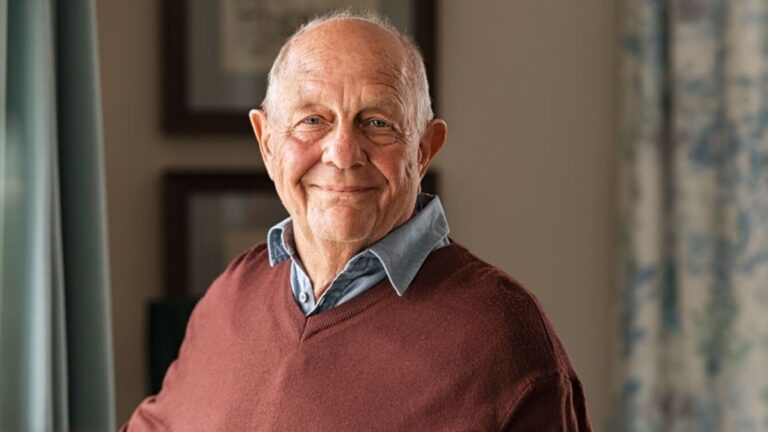Do Your Genes Determine How Long You’ll Live? Here’s What Science Says
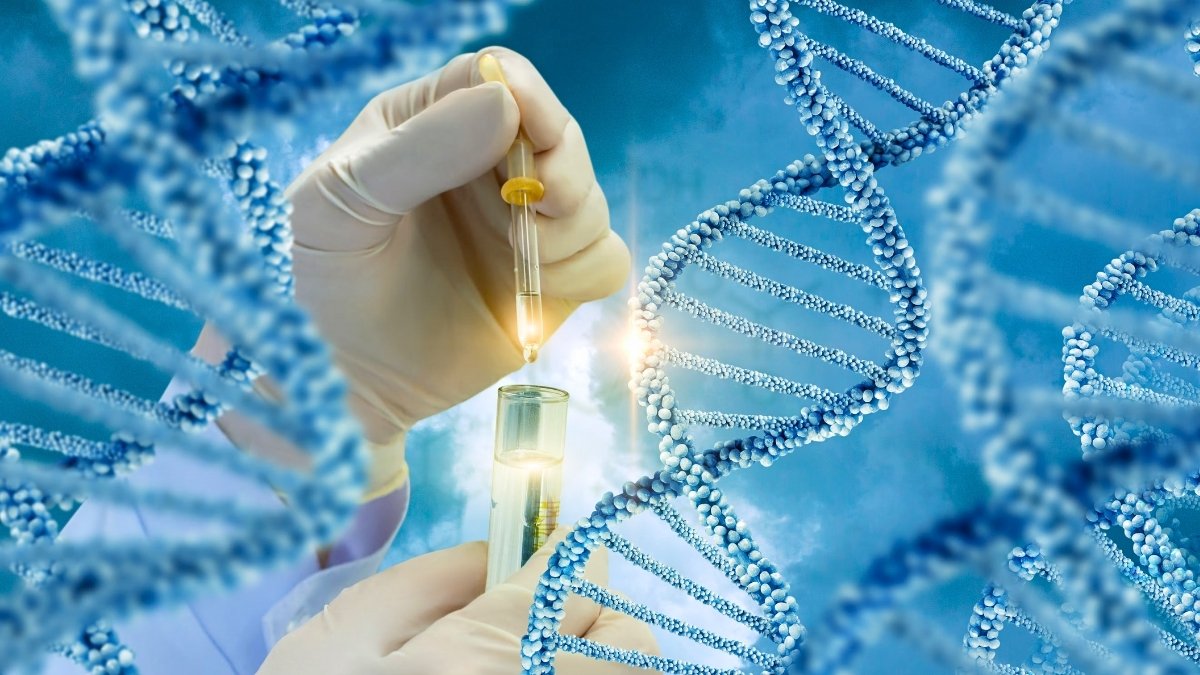
“Your grandmother lived to 98, but your grandfather died at 62—does that mean you’re destined to split the difference?”
It’s a question many people ask when they think about aging. You might assume your DNA decides everything about how long you’ll live. But here’s the truth: genes determine lifespan far less than most believe.
Research shows that genetic factors account for only 20–30% of how long we live. The rest depends on daily choices—how you eat, move, sleep, and handle stress. That means even if you were “dealt bad genes,” you’re not stuck with a short life.
In this article, you’ll learn how much genes really affect longevity, which ones matter most, and how lifestyle habits can override genetic predisposition. You’ll also get actionable steps to help you stay stronger, longer—no matter what’s written in your DNA.
Do Your Genes Determine How Long You’ll Live?
Short answer: genes matter, but not nearly as much as your daily choices.
APOE (Alzheimer’s)
E4 increases Alzheimer’s risk (up to ~3×). Exercise and diet can sharply reduce that risk.
FOXO3 (centenarian gene)
Protective variants linked to longevity (≈2.7× likelihood to reach 100). Lifestyle (fasting, exercise) can activate it.
TERC / TERT (telomeres)
Control telomere length. Stress and poor sleep shorten telomeres—good habits slow this down.
DNA repair genes
Genes like BRCA play a role in cancer risk. But adequate sleep and reduced exposures help DNA repair processes.
The Science Behind Genetics and Longevity

For decades, scientists studied identical twins to crack the longevity code. What they found surprises most people: your genes control only about 25% of how long you’ll live.
The Swedish Twin Registry tracked thousands of twins over 30 years. Identical twins raised in different homes lived surprisingly different lifespans. This proves environment beats DNA most of the time.
Here’s the twist: genes matter less as you age. Before 60, genetics account for 25% of lifespan differences. After 60? That drops to just 10-15%.
Think about it. Two twins with identical DNA can have 10-year lifespan differences based purely on lifestyle choices.
The 2018 Ancestry.com study analyzed 400 million family trees. The conclusion shocked researchers: genes explain far less than we thought.
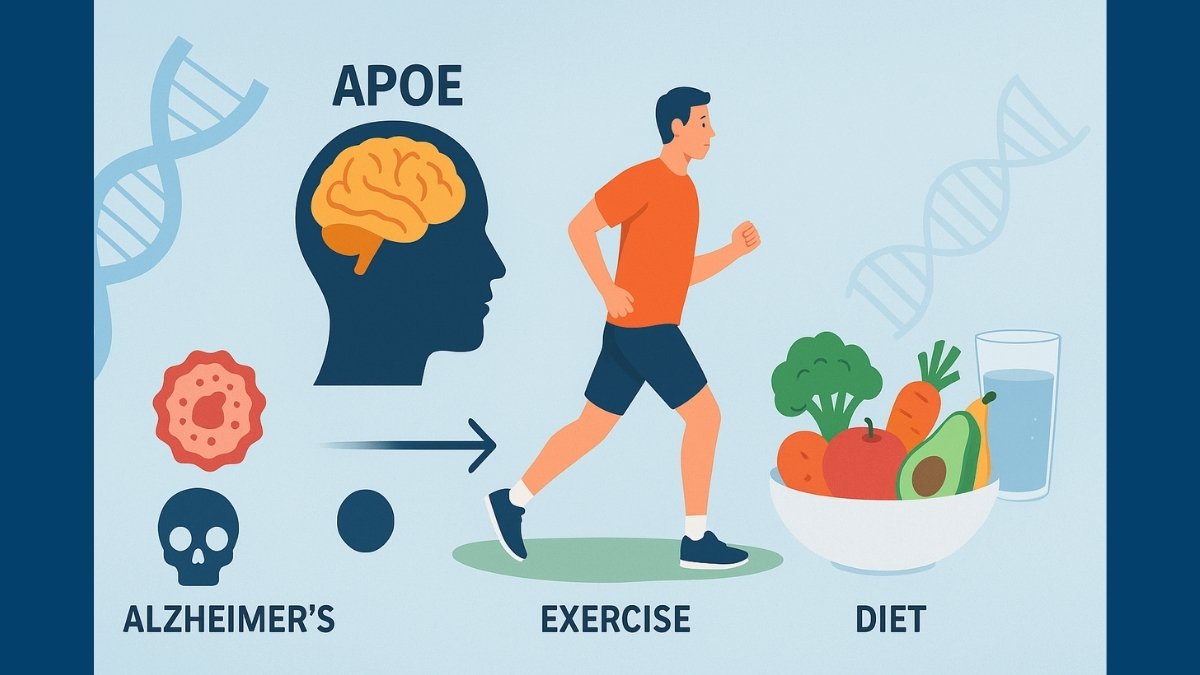
Lifespan means years lived. Healthspan means years lived well. Your genes might add years, but your habits determine if those years feel good or miserable.
Okinawan centenarians share certain gene variants like FOXO3. But their relatives who moved to America and ate Western diets? They died decades younger with the same genes.
The APOE gene affects Alzheimer’s risk. But even people with the risky E4 variant can delay or prevent dementia through exercise and diet.
Why do genetic studies contradict each other? Small sample sizes. Sensational headlines. Most studies find tiny effects that disappear in larger trials.
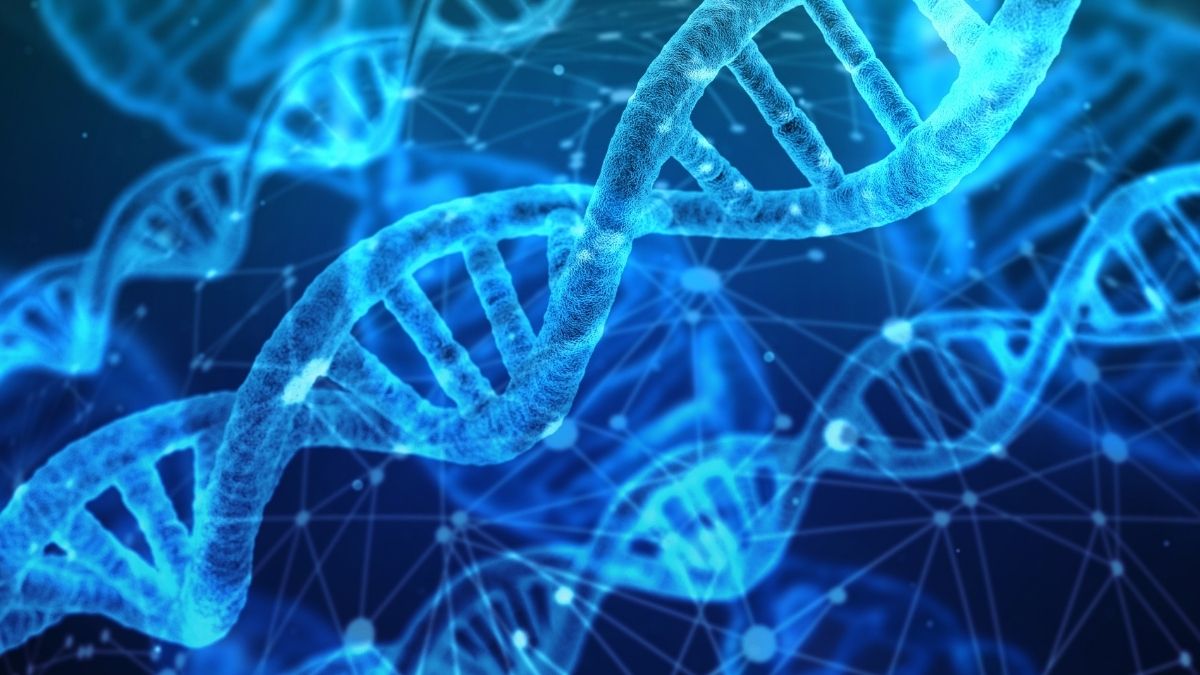
The takeaway: how much do genes affect lifespan? About one-quarter. The other 75%? That’s all you.
The Specific Genes That Influence How Long You Live
Among 20,000 human genes, only a handful actually affect how long you’ll live. These are the genetic factors in aging that scientists track most closely.
APOE: The Alzheimer’s Gene
You have three possible versions: E2, E3, or E4. Most people carry E3, which is neutral. E2 protects your brain and heart. E4 triples your Alzheimer’s risk and increases heart disease chances.
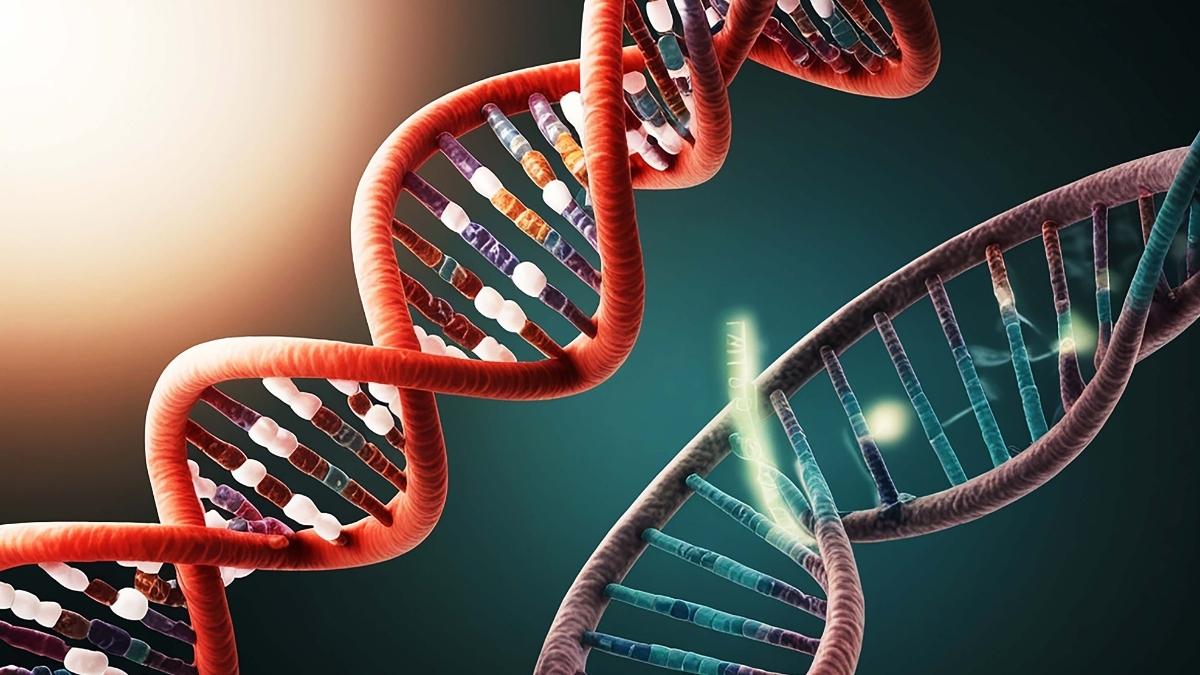
But here’s what matters: even with E4, exercise cuts that risk in half. Your genes load the gun. Your lifestyle pulls the trigger.
FOXO3: The Centenarian Gene
This longevity gene shows up constantly in people who live past 100. If you have the protective variant, you’re 2.7 times more likely to reach 100 years old.
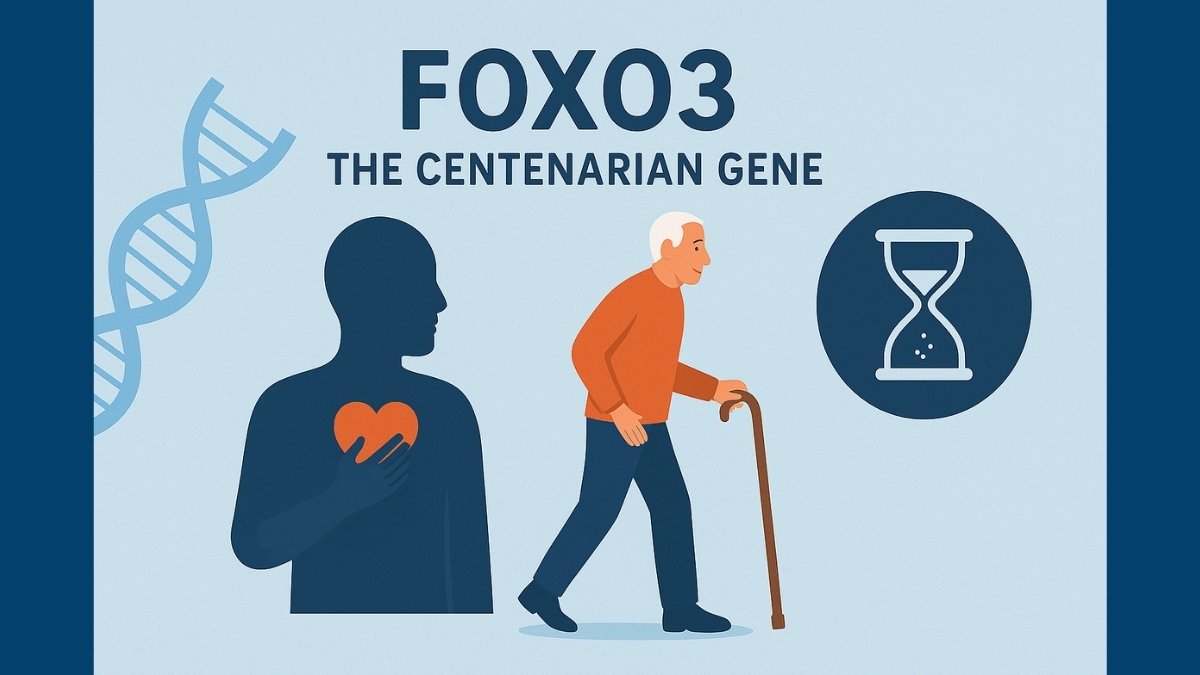
FOXO3 helps cells resist stress and repairs damage. Fasting and exercise turn this gene on even if you don’t have the best version.
Telomere Genes (TERC and TERT)
Think of telomeres as plastic tips on shoelaces. They protect your DNA. Every time cells divide, telomeres get shorter. When they’re gone, cells die.
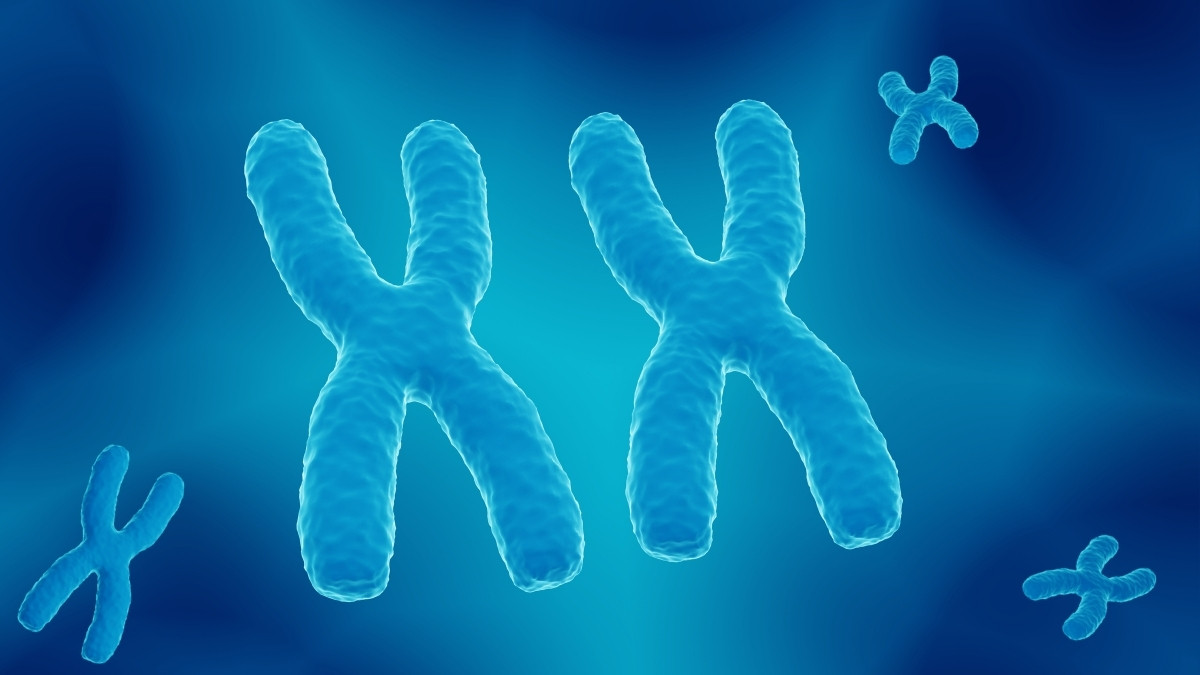
TERC and TERT genes control how fast this happens. Bad variants mean faster aging. Good news? Stress shortens telomeres regardless of genes. Managing stress lengthens them.
DNA Repair Genes
Your body fixes thousands of DNA errors daily. Genes like BRCA1, BRCA2, and others run this repair shop. Faulty repair genes increase cancer risk by 50-80%.
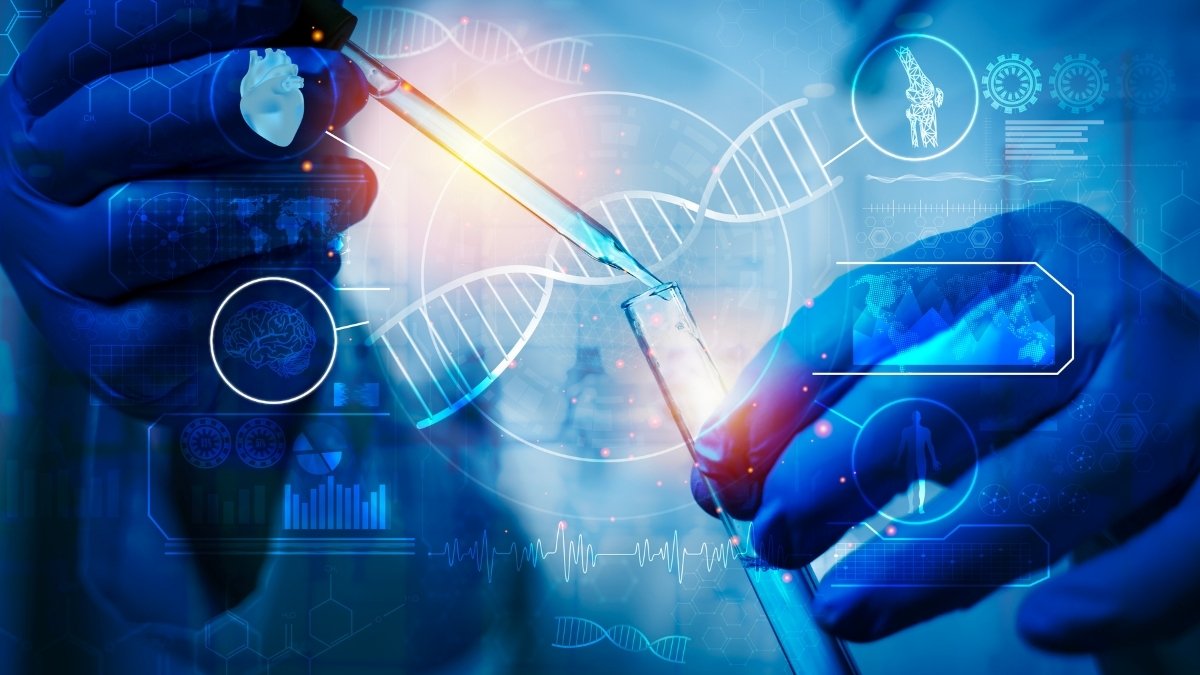
Sleep activates DNA repair. Skip sleep and even perfect genes can’t save you.
Why Genes Aren’t Destiny
Here’s the truth about do genes determine lifespan: they suggest possibilities, not certainties. You have two identical twins. Same DNA. One exercises and eats well. The other smokes and eats junk food.
The healthy twin can outlive the unhealthy one by 15-20 years with identical genes.

This happens through epigenetics. Your genes are like light switches. Lifestyle choices flip them on or off. You can silence bad genes. You can activate good ones.
Multiple genes work together (polygenic). No single gene controls your fate. It’s a team effort, and you’re the coach.
7 Science-Backed Ways to Override Bad Genetics

Your DNA sets the stage—but your choices write the script. Research shows genes control only about 25% of your lifespan. The rest depends on what you do every day. Here’s how to start overcoming genetic predisposition and take control of your future health.
7 Science-Backed Ways to Override Bad Genetics
Your DNA sets the stage—but your choices write the script. Research shows genes control only about 25% of your lifespan. The rest depends on what you do every day. Here’s how to start overcoming genetic predisposition and take control of your future health.
1. Move with Purpose
Just 150 minutes of moderate exercise a week—like brisk walking or resistance training—can reduce genetic disease risk by 40%.

Exercise turns on genes for repair, strength, and longevity.
2. Eat Like Your Health Depends on It
The Mediterranean or MIND diet lowers inflammation and protects DNA. Fill your plate with fish, olive oil, nuts, beans, and leafy greens.

These foods switch off harmful genes linked to chronic illness.
3. Sleep to Heal Your Cells
Deep sleep clears amyloid buildup, helping prevent Alzheimer’s.

Aim for 7–9 hours nightly—your body repairs DNA and lengthens telomeres while you rest.
4. Stress Less to Slow Aging
Chronic stress shortens chromosomes.

Meditation and deep breathing help protect telomere length and support healthy aging at the cellular level.
5. Build Strong Connections
Harvard’s 85-year study proved people with close relationships live longer and stay mentally sharper. Connection literally changes biology.
6. Avoid Hidden Toxins
Smoking, alcohol, and pollution trigger epigenetic changes that damage cells. Reducing exposure slows genetic wear and tear.
7. Keep Learning New Things
Reading, puzzles, or learning a new skill builds “cognitive reserve,” cutting dementia risk by 30%. Apps like Lumosity or Duolingo help make it a daily habit.

So, how much do genes affect lifespan? Far less than your habits do. Every choice you make—how you move, eat, rest, and think—can rewrite your biology and reshape your future.
The Future: Can We Hack Our Genetic Lifespan?
Scientists are getting closer to slowing aging at its source—our genes. Current anti-aging research explores compounds like senolytics, NAD+ boosters, and metformin, which aim to repair or clean up aging cells. Trials such as David Sinclair’s work on NAD+ and the TAME trial on metformin show early promise in extending healthy years, not just lifespan.

CRISPR gene editing and Yamanaka factors hint at resetting aging cells, while Rapamycin and caloric restriction mimetics mimic the effects of fasting to improve longevity in animals. But here’s the truth: most results are early-stage, expensive, and years from public use.
Personalized medicine based on your DNA could one day target diseases before they start—but ethical and cost barriers remain high.
The takeaway? Genetics and longevity research offers real hope, but lifestyle still beats lab tech—for now.
Lastly,
Genes shape about 25% of your lifespan, but the other 75% is up to you. That’s the empowering truth science keeps proving. Your genetics isn’t destiny—it’s a starting point. What truly matters are the choices you make every day.
The three biggest factors? How you move, what you eat, and how you handle stress. Regular activity keeps your cells young. A Mediterranean-style diet lowers inflammation. And strong relationships protect your heart and brain. Family history still matters, but it doesn’t decide your fate—you do.

Start with one change today: take a 30-minute walk, swap one meal for a Mediterranean-style option, or call someone you’ve missed. Your future self—no matter your DNA—will thank you.


